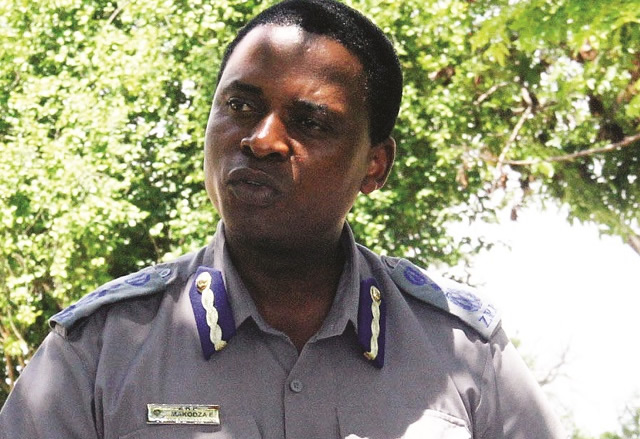Giving care to children with disabilities

Priscilla Chikume Correspondent
One can be born with all body parts functioning well, but disability can befall anyone anytime.
As many people would refer to a newly born baby as a gift from God, some seem to do so when the child does not have any disability.
This is normally seen when a member of the family has challenges physically, it then becomes a thorn in the flesh for the whole family especially the immediate family that takes care of such person with disabilities.
With the aim of understanding the circumstances and challenges being faced by the physically challenged accommodated in various charity organisations in Zimbabwe, I visited Jairos Jiri children’s home to get a glimpse of the real situation on the ground.
There I met Prudence Nyika (not real name) one of the students at the charity organization.
Tracing back to her childhood one could note that she is talented, she is among those who were considered to be the best at Dangamvura Primary School before all the misfortunes that made her part of the students who are now housed at Jairos Jiri children’s home.
Prudence’s life changed one fateful day as she was heading home from school together with her brother.
She fell sick in a strange way, from what doctors later confirmed to be a bout of malaria.
When Prudence was admitted to hospital, her situation deteriorated as malaria transformed into a strange disease which ended up affecting her legs.
“My legs began to change colour turning into black with small white spots. I used to cry every time as it was impossible for me to go to the toilet on my own. I started to feel and see myself as a burden to my parents as well as the whole family,” said Prudence.
Doctors advised her parents that she should undergo surgical treatment which would result in her losing both legs.
As the parents couldn’t afford to watch their child going through such tragic pain due to the unnamed disease, they were left with no option but to agree to her amputation to save her life.
The young girl later found herself enrolled at Jairos Jiri, a place she neither chose nor dreamt of.
Physical challenges such as living with disability, adversely affect the psychological well-being of the whole family especially the immediate family that takes care of a child living with such conditions.
However this has not been the case with Jairos Jiri staff members who provide health care, education and physiotherapy services to a population of more than two hundred students leaving with disabilities at the institution.
The children’s home staff members have become the immediate family to almost every student enrolled at the institution.
After visiting the school one would understand that educating a child who is physically challenged requires a special skill and the enduring spirit due to the fact that most students are incapacitated to perform very simple tasks because of their physical challenges.
As some students use their legs to write and rely on their heads for strength makes a single lesson more complicated.
Unlike any other student without physical challenges, pupils at Jairos Jiri gain different skills during their school days, which may help some to realize or perfect their talents such as artistic talents.
The extent to which one acquire skills depend on one’s condition as some cannot perform certain tasks which may prove too difficult.
In an interview with the Jairosi Jiri Children’s Home principal, Sheila Chiwaridzo emphasised the challenges that are being faced in sport, education and welfare of the students.
She lamented that sporting is the most sophisticated extracurricular activity to do at the school but because of the inadequacy in modern facilities it becomes complicated.
“We do sporting activities such as wheelchair basketball, cricket and slalom (movement of wheelchairs). The biggest challenge we are facing is the lack of special wheelchairs that are designed for such sports. If we have sport tournament we usually borrow from our sister institution Danhiko, however the problem comes when we want to compete with them,” said Chiwaridzo.
Despite the intricacy in sporting, it is also expensive to organise sporting events for students with disabilities.
As far as the students’ welfare is concerned the institution tries to make students feel comfortable through the provision of enough food. The institution consumes 50kgs of mealie meal, 6 litres of cooking oil on daily bases while 40s kg of meat twice a week making it burdensome for the school to thrive throughout the whole year.
While the institution mostly relies on donors and well-wishers, they normally end up failing to secure their reserves in order to sail throughout the year.
It is said, the shortages in food provision are also being caused by the parents who fail to pay even half of the school fees.
Whilst most of the parents pay half of the fees required some don’t even pay a single dollar, therefore the institution end up opening its palms for donations for sustenance.
The government is also helping through programs like (Basic Education Assistance Module) BEAM and SOS for a few selected students.
To provide essential services and proper handling to these disadvantaged students, the institution has employed both qualified and trainee nurses under various departments that include health, education and physiotherapy.
However trainee nurses on attachment lamented the challenges they are facing in handling students with disabilities.
Nurses at the children’s home pointed out that there is normally communication breakdown as students find it difficult to convey a message to their patron or the other way round.
“The first time I came here I found everything to be tough but as time progressed I got used to the day to day routine at the institution,” said the nurse.
Lack of male caregivers at the institution to take care of a boy-child is one of the issues raised by trainee nurses.










Comments